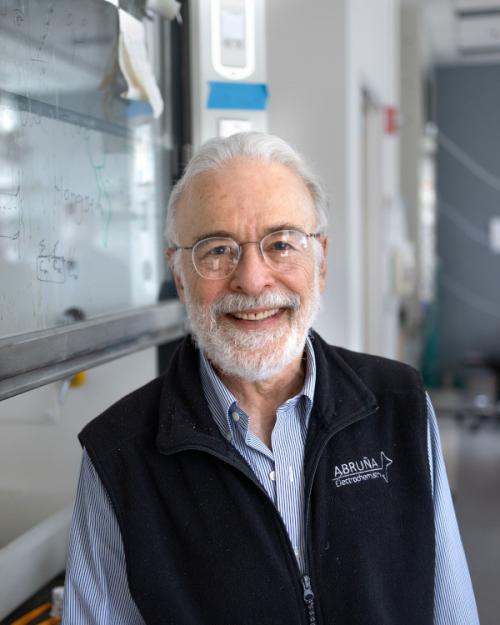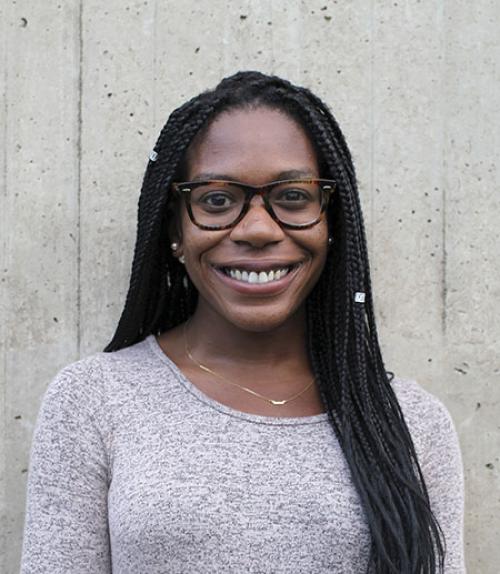Chinelo Onyilofor ’15 has found that her studies in chemistry and art history have taught her the art of looking for small details, whether she’s finding the hidden meaning in a painting or an answer to solve a chemical synthesis.
After she graduates this weekend, Onyilofor, a double major in the College of Arts and Sciences from Annapolis, Maryland, plans to travel for a year before going to graduate school to pursue a doctorate in organic chemistry.
“The practice of truly looking at an object to reach its most essential meaning is something that I would have never of learned without my liberal arts education,” Onyilofor said. “I was drawn to the fields of art history and chemistry because they derive complex – and often very broad – questions from the tiniest of details. While one discipline deals primarily in subjectivity and the other in objectivity, in both scholars collect and analyze information in what are sometimes elusive attempts to make meaning from objects.”
Onyilofor joined the lab of professor Geoffrey Coates in 2013 and has been researching the synthesis of ion-solvating polymer membranes in fuel cells, which are a highly efficient and nontoxic source of environmental energy.
“Once I joined Coates' lab, I was challenged to create my own experiments and develop unique procedures and goals,” Onyilofor said. “This was and still is an amazing experience for me as I have acquired the ability to initiate and conduct research in scientific literature and adjust my approach when not everything goes as planned.”
Her work has many possible applications: giving people in less-privileged countries access to electricity and decreasing our dependence on fossil fuels, she said.
“It is very important for me to conduct research that can address a world problem such as the energy crisis, and is in line with my future aspiration to continue research in chemistry that has practical applications,” Onyilofor said.
Along with her research, Onyilofor has been active in the History of Art Majors’ Society, a student group that works closely with the Herbert F. Johnson Museum of Art to curate an annual exhibition drawn from the museum's collection. She has also been a public achievement coach through the Public Service Center, working with children in three local schools to solve issues within their communities.
“Through the fundamental values of this program, such as self-empowerment and active citizenship, I have had the opportunity to interact with many Ithaca residents of all ages,” she said. “I was able to convince people of the younger generation that they do have a voice and that their age is not a factor determining whether or not they will be heard.”
Read about other graduating Arts and Sciences students' Exceptional Journeys.
This article originally appeared in the Cornell Chronicle.




